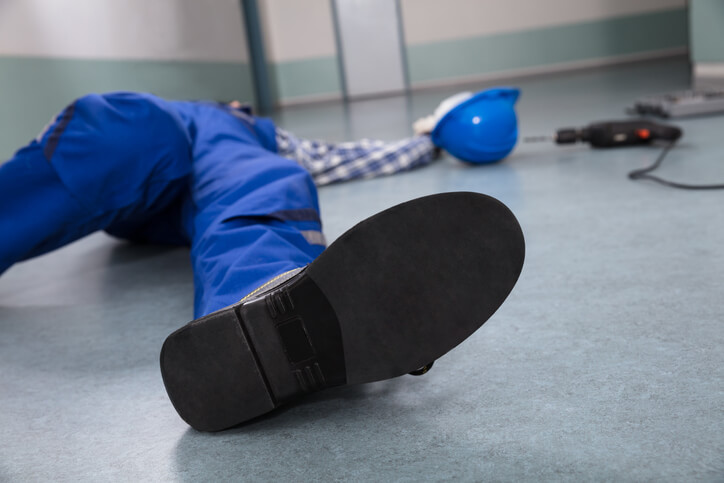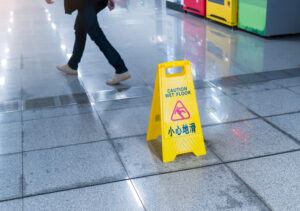Dealing with the “Open and Obvious” Defense in Slip and Fall Cases

Anyone who owns or occupies property has a legal duty to keep it safe for guests and other people who may enter upon it. When dangerous conditions exist, slip and fall accidents are likely to occur, particularly on commercial premises where there is a high volume of foot traffic. A property owner or manager can be held liable to an injured person for failing to eliminate or to post adequate warnings about a known hazard. But what if the hazard is so apparent that no one would fail to see it and avoid it?
 A premises owner or manager who is sued by someone injured in a slip and fall can raise a defense that the hazard was “open and obvious,” meaning that the victim either knew or should have known it existed and therefore was negligent in failing to avoid it. A visibly wet floor, a crumbling sidewalk or a stairway with a broken or missing handrail are possible examples of such hazards.
A premises owner or manager who is sued by someone injured in a slip and fall can raise a defense that the hazard was “open and obvious,” meaning that the victim either knew or should have known it existed and therefore was negligent in failing to avoid it. A visibly wet floor, a crumbling sidewalk or a stairway with a broken or missing handrail are possible examples of such hazards.
The open and obvious defense is different from an owner or manager claiming to be unaware that a hazard existed. A plaintiff normally has to show that the owner or manager had actual or presumed knowledge of the dangerous condition. But with the open and obvious defense, the defendant — far from asserting lack of knowledge — argues that anyone coming onto the property would have noticed the condition and its dangerous nature.
The use of the open and obvious defense would seem to be risky for the defendant, since they are admitting knowledge of the hazard. But under New Jersey law, this defense is considered as part of a determination of comparative negligence. A plaintiff’s recovery of damages will be reduced to the extent he or she was at fault for the accident. So the fact that a hazard was apparent means the plaintiff may have been partially negligent in failing to notice or to avoid it. However, knowledge of existence of the hazard and a failure to fix it will count against the defendant.
If you are injured in a slip and fall accident, an experienced personal injury attorney can analyze your case and determine your likelihood of success. All relevant factors will be considered in deciding on comparative negligence, including the location of the hazard, its visibility and how long it persisted. Generally, the greater the danger that a hazard presents, the more negligence will be attributed to the property owner or manager and the less negligence will be attributed to the accident victim. This is important, since under New Jersey law, a plaintiff who is more negligent than the defendant cannot recover any damages.
The law firm of Kevin T. Kutyla, Esq. in Succasunna provides powerful representation in all types of personal injury cases for clients in Morris County, Sussex County and throughout New Jersey. Call 973-940-8970 or contact me online to schedule a free consultation.
